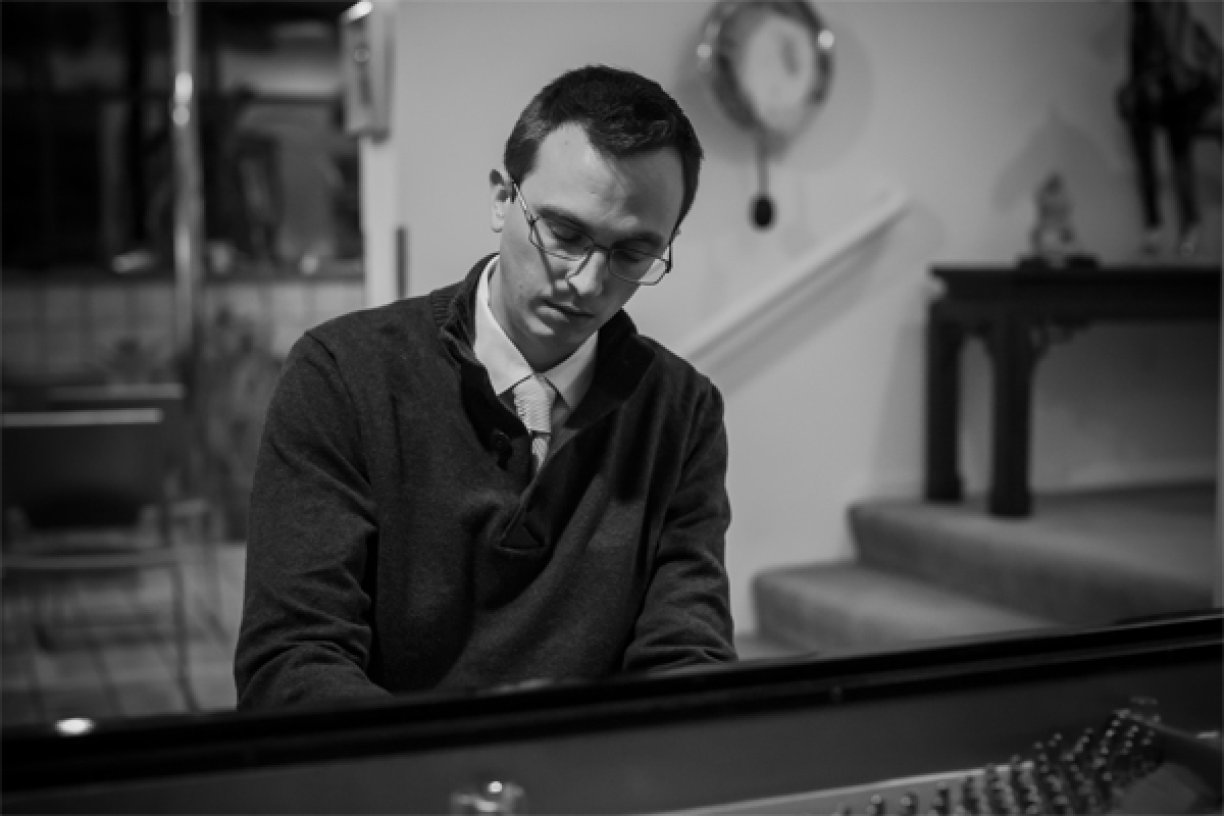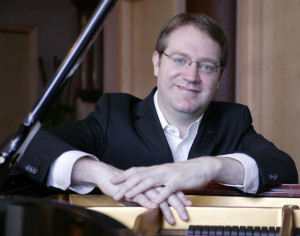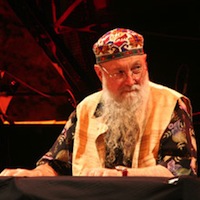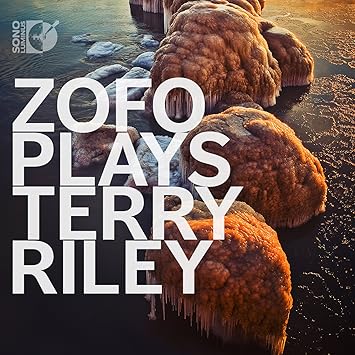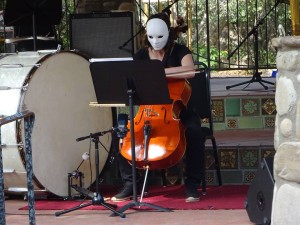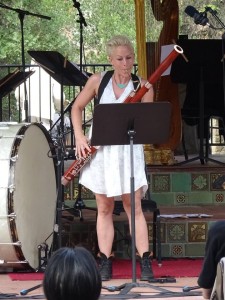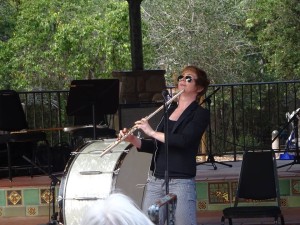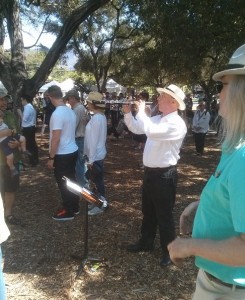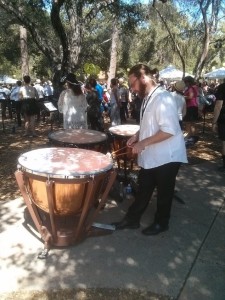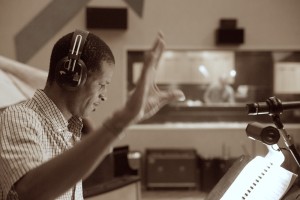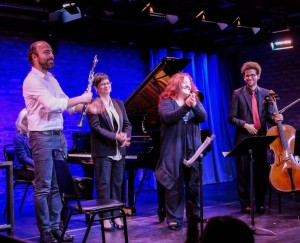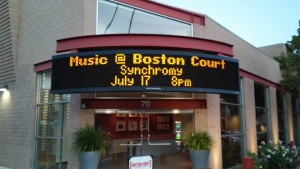 Friday night July 17 and Boston Court in Pasadena was the venue for a concert titled Music From Text presented by Synchromy, the Los Angeles-based composers collective. Brightwork newmusic was the featured performing group and a sell-out crowd gathered for an evening of contemporary music based on the spoken word.
Friday night July 17 and Boston Court in Pasadena was the venue for a concert titled Music From Text presented by Synchromy, the Los Angeles-based composers collective. Brightwork newmusic was the featured performing group and a sell-out crowd gathered for an evening of contemporary music based on the spoken word.
Breathe by John Frantzen began the concert and this performance was the world premiere. Breathe is based on a poem written by composer’s brother about the trials, hardships and relationships as experienced in military life. In the program notes John Frantzen states that the music “strives to frame these words of support, honor and camaraderie in a journey of love, loss and enlightenment.” The piece began with a short section of the text spoken by a narrator followed by high-pitched bird calls and some bowing of the strings that suggested a lonely breeze in a far away place. The sound of a distant snare drum effectively evoked the military setting. The soprano voice of Justine Aronson was heard and the generally unsettled character of the passages in the strings hinted at the stress and confusion that is present in wartime. This was also portrayed by two actors on the stage whose movements intentionally suggested the strong bonds shared by soldiers in the field. At length the music gave way to a slow, dirge-like unison that was very beautiful. More dramatic action followed, ending in a sudden silence and the spoken word ‘breathe’. The viola and cello again took up the sorrowful theme and this was especially moving, even as the snare drum recalled the military context of what was fundamentally a story about relationships. Frantzen was able to draw a surprising amount of emotion out of the small musical forces in this piece. Breathe is a powerful work that captures both the anxiety and deep emotional attachments that are the essential elements of a soldiers life lived in harm’s way.
The next two pieces on the program were both based on text by Tao Lin and were played consecutively. The text of the first of these was taken from the poem I will learn to love a person and the music by Christopher Cerrone bore the somewhat expansive title I will learn to love a person and then I will teach you and then we will know. This began with spoken text followed by gentle tones in the vibraphone and clarinet. The entrance of Ms. Aronson’s lyrical soprano voice added to the delicate, airy texture and carried the melody forward by weaving in and around the vibraphone line. The dynamics here were carefully observed, adding an extra element of vividness to the realization. This piece agreeably reflects the calm character of the poetry and, as Christopher Cerrone states, “In writing these pieces, my hope is to create a work that reflects the strange and beautiful experience of growing up at the turn of the (21st) century – and will continue to have meaning after that moment passes.”
A declarative sentence whose message is that we must try harder by Jason Barabba followed the Cerrone piece without pause. This was played by a viola, cello and contrabass trio and started with a high pizzicato in the viola and some fast dissonant passages in the lower strings. There was tapping on the wooden parts of the instruments and this added to the feeling of a distant uncertainty as the anxiety mounted in a series of running phrases in the bass, viola and cello. Rapid running of the fingers up and down the strings produced a series of soft, unworldly screeches that added to the tension. This music is also based on the poetry of Tao Lin, but provided a fine contrast with the serenity of the previous piece. Jason Barabba writes that “Because this work is a reaction to a complex and provocative poem, I’ve chosen to take advantage of some of the more unusual techniques that have been introduced for these instruments.” These were deployed with good effect and the string players managed everything quite smoothly. The piece briefly turned warm and dark, but held to the tension of the preceding sections. The fast and turbulent finish was fittingly taut and mysterious. The playing of a declarative sentence whose message is that we must try harder was well matched to the writing of the music and these combined to persuasively express the composer’s intentions.

